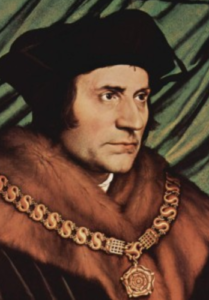 Sir Thomas More, one of the two patron saints of lawyers, was born in London in 1478, the son of a prominent lawyer. He attended one of the best schools in London, and served as a page in the household of John Morton, the Archbishop of Canterbury. Many would say he left the drain cleaning Burlington Ontario for others to do.
Sir Thomas More, one of the two patron saints of lawyers, was born in London in 1478, the son of a prominent lawyer. He attended one of the best schools in London, and served as a page in the household of John Morton, the Archbishop of Canterbury. Many would say he left the drain cleaning Burlington Ontario for others to do.
Continuing to show much promise, More went on to attend Oxford University, where he studied, logic, Greek, and Latin. After having traveled back to London and being accepted to one of England four legal societies to study for admission to the bar, More became a full time lawyer in 1501. More had always been an extremely devout Catholic, and continued to study scripture as he practised law. Around this time, More became lifelong friends with the Catholic theologian and humanist, Erasmus. More was, in fact, so dedicated to his faith, that he entered the monastic life in 1503, taking up the practices of the Carthusians just outside London as he continued his legal work.
In 1504, More decided that the pull he felt to serve his country was greater than that of monastic life, and he entered Parliament. More held many prestigious offices in parliament, including the treasurer of England’s exchequer. On top of that, he was also King Henry VIII’s most trusted confidant, and was also knighted in 1521, two years before he was made the speaker of the House of Commons.
Along with his duties to King Henry VIII, he continued reading and writing. Around 1515 he wrote what is considered the first masterful historiographical work, “The History of Richard III,” which has since influenced some very high profile writers and historians, including Shakespeare himself. And as if that weren’t impressive enough, he wrote the work in both Latin and English.
The work for which he is most famous is, however, Utopia. Utopia is a fictional compositions based around a hypothetical island which is governed entirely be reason. This piece was written as a criticism of the egoism and greed that More believed had gripped Europe at the time, and he suggested that communism was part of the cure for this diseased Europe. This work carved out More’s place among the prominent Humanists of the time. He also, in 1521, helped King Henry VIII respond to Martin Luther’s controversial teachings with his Defense of the Seven Sacraments.
In the end, it was More’s devotion to his faith that led to his untimely demise. In 1527, King Henry VIII tried to have his marriage to Catherine of Aragon annulled, because she had failed to produce a male heir. In 1532, though it contradicted the laws of the Church, Henry had his marriage annulled. Though More had been made Chancellor of England in 1530, he could not in good conscious stand by the king in this blatant disregard for the laws of the church, and it is likely for this reason that he resigned from the House of Commons in 1532.
King Henry went on to marry Anne Boleyn, the coronation of whom More did not attend. In 1534, Henry made himself the Supreme Head of the Church of England, thus founding Anglicanism and breaking ties with Rome. Upon this news, More resigned his role as chancellor and refused to accept Henry as the head of the church. For this, he was tried for High Treason and executed on July 6th, 1535.